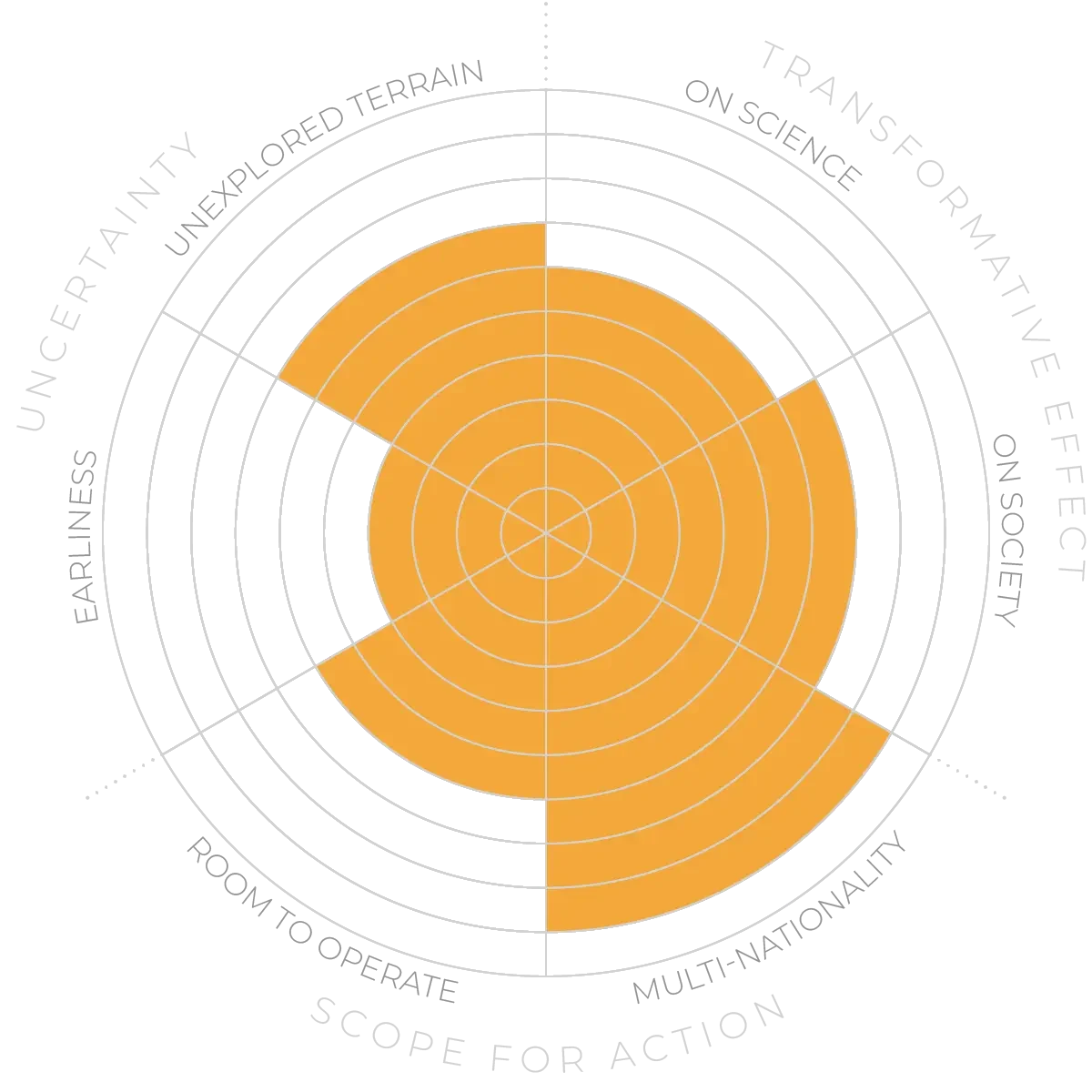Future Horizons:
10-yearhorizon
Mathematical thinking focuses international discussions
25-yearhorizon
Negotiating standards increase thanks to mathematical approaches
This approach could help to reveal the ingredients of success for global cooperation. Numerous non-governmental organisations in complex networks currently aim to solve complex problems such as climate change and the challenges related to Sustainable Development Goals. And yet they often achieve far less than they hope. A better understanding of the way organisations should interact to achieve specific goals could change this.
Negotiation engineering has already achieved a number of practical successes. For instance, in the diplomatic sphere, the approach played a crucial role in the land transport agreement between Switzerland and the European Union, and in facilitating nuclear talks between Iran and the P5+1 group of nations.14
Negotiation engineering does not intend to replace face-to-face discussion and neither does it seem likely to ever do so. It may in some cases also have limited application: not all problems are quantifiable or should be reduced to a quantitative level. However, in case a negotiation involves problems with a particular degree of complexity and actors with a certain level of analytical capacity open to a rational approach, negotiation engineering can allow for more logical accuracy in finding pragmatic solutions while building trust between mediators.
The availability of negotiation tools powered by AI has triggered a transformative period in negotiation engineering. These tools are helping human negotiators become more effective and has kick-started a new era of automated negotiations with their own strategies and characteristics. This evolution is paving the way for a greater exploration of the strategy space and the development of new negotiation theories that encompass and extend established theory.15,16
Negotiation engineering - Anticipation Scores



